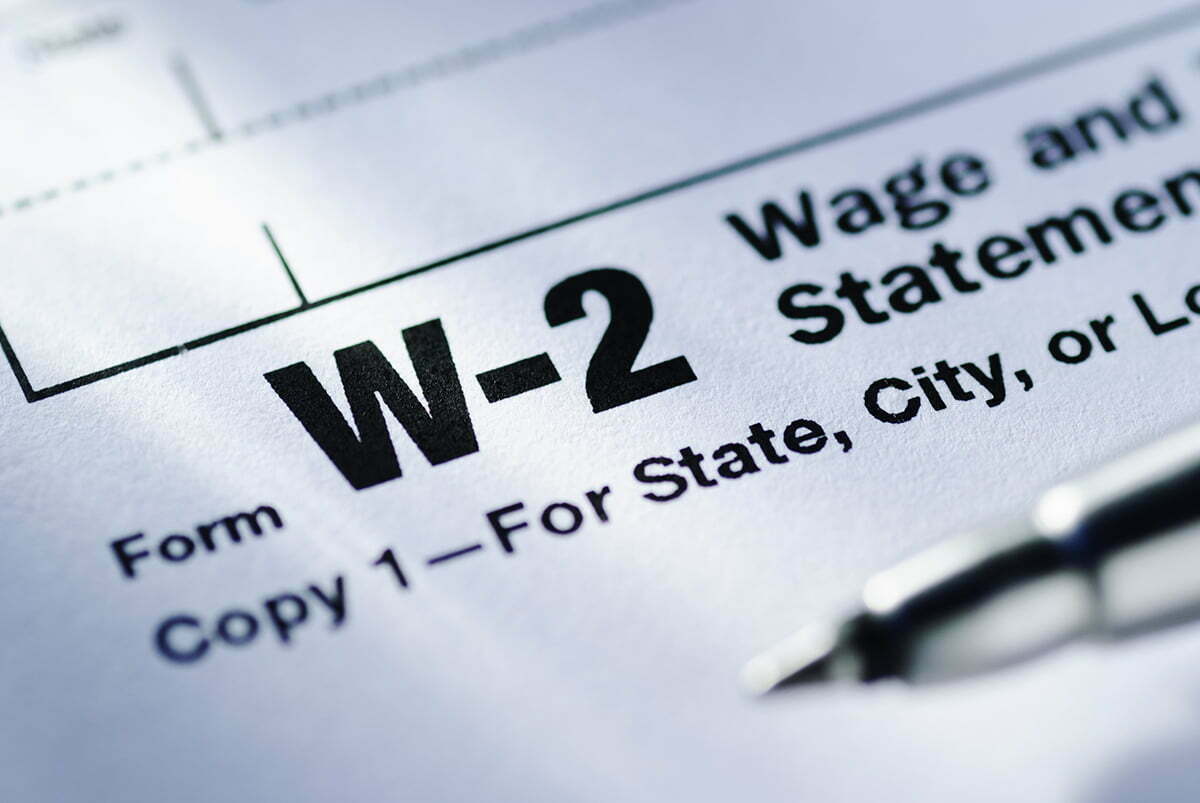Home /
Stop Them from Taking a Bite Out of Your Wages
The power to be able to legally levy any income has always been what the IRS is known for. To satisfy the taxes owed and the federal tax debt, it’s almost common to find that garnishments can happen to anyone. The wage garnishments can apply to your salary, hourly wages, bonuses, and commissions. Understanding how this works can help you stop the IRS from taking your income.
How Does It Start?
If the IRS seizes your income, they will have part of your wages for each pay period. This can happen until you make other types of payment arrangements to pay your overdue taxes, you pay the amount of overdue taxes, or if the levy is being released.
Any amount of money owed can be garnished from your wages by the IRS. This can happen easily, especially if you owe the IRS any unpaid taxes. Before this eventually happens, you will receive notices from the IRS for a couple of months first. In most cases, the IRS would choose a friendly approach when it comes to dealing with your problem. You can risk yourself being sent to the jail by the IRS once they are taking a more serious step. It is when they have no other options and you refuse to respond to them that they will start to garnish your wages.
Complying with the IRS Wage Garnishment
Your employer is required to obey the IRS wage garnishment. If the IRS decides to move forward with your wage garnishment, there is not much of a choice for your employers other than complying with it.
For example, a single father who has two children filing his tax as the head of the household in 2017 can only be left with as little as $413.46 per week. This means the IRS can take up to $586.54 of your $1,000 per week of wages, and they can take up to $1,586.54 if you are earning $2,000 per week.
If you allow garnishments to happen, you will risk paying more than what you are supposed to. For the IRS to demand a wage garnishment, you must first fail to respond to them. In most cases where garnishments are taken place, the IRS will ask for a tax liability first. If you are not able to explain why you are not responding back, they will start to garnish your wages.
The final notice of intent will be sent by the IRS. As soon as this notice has been sent, you have about 30 days before the IRS wage garnishments are taking place. If you fail to act by this time, your wages will be garnished by the IRS.
Again, they tend to prefer to come to an agreement with you. In most cases, the IRS will even allow a lesser amount of money to be paid to them, rather than garnishing your wages.

How to Get an IRS Wage Garnishment Release
As mentioned above, the IRS tends to be willing to accept less money than garnishing your wages. This is not because they have sympathy for you—wage garnishment can be an expensive process. Therefore, most of the time, the IRS would want to approach your situation in a more friendly and proper way first. If you wonder whether you can get an IRS wage garnishment release, you are lucky because you can definitely do that, just follow the following rules.
1. Comply with the Rules
In order to get the IRS to treat you nicer, you have to assume the position by complying with their rules. This means you have to be able to file your taxes every year. Failure to file taxes can lead them to ignore your plead.
2. Pay All Your Debts
Obviously, the IRS will stop going after you if you pay off all of your debts. You can also try to sell an asset or even borrow money by getting a credit card alternative. If you can get the IRS off you by doing as many legal things as you can, you should definitely do it as this will relieve some stress.
3. Compromise with the IRS
It’s worth a try, but it’s not easy. If you can make an offer which they can’t refuse, you should do it. Basically, this situation allows you to compromise with the IRS. You should also hire a smart tax attorney who has many experiences dealing with getting an IRS wage garnishment release.
4. Make Them Agree to an Installment Payment Plan
Often, if you hire a good tax attorney to deal with your wage garnishment, you will also get the chance to get the IRS to agree to an agreement. This will usually give you up to three years to pay your owed taxes to the IRS. As long as you have paid all of your previous debts, the IRS will probably allow you an installment agreement even if your credit score is not that great.
5. Convince the IRS of a Financial Hardship
Convince the IRS that your financial situation is bad and request some type of agreement from them—at least until you improve your financial situation. You will probably be able to get them to agree to wait for the wage garnishment if you can prove that you can’t pay for basic living expenses if they garnish your wages. This is where a tax attorney comes in handy as they know exactly what kind of procedures that the IRS will use in deciding whether you are facing a financial hardship or otherwise.
6. Change Your Employers or Quit Your Job Temporarily
The IRS wage garnishment is specific to just one employer. But if you are a risk-taker and keep changing your jobs, the IRS will have a hard time getting a new garnishment. This is because each wage garnishment will take them several months to do and it’s an expensive procedure. Other than that, you can also quit your job temporarily. If the IRS sends a notice to your employer and they inform that you no longer work with them, the wage garnishment is considered invalid. Then, if you go back to the same employer and they hire you again, the IRS will have to get another garnishment.
7. Your Last Option
If you are left with no other options, you can also declare bankruptcy. If you want to keep your home, filing for bankruptcy might be your last option. You can declare bankruptcy and still keep your home, but you will also wipe out the home equity line of credit debt. Of course, your financial situation will be left with a major impact if you decide to go on this path. It will stop the wage garnishment for a while, but you will not get out of the IRS tax debt.
Dealing with Wage Garnishment
You are in danger of a wage garnishment if you have unfiled tax returns or even a huge outstanding balance that you owe to the IRS. Form 668 (W) is used to seize a person’s salary, income, and wages which they owed. If you see a letter from the IRS with the words “Final Notice of Intent to Levy”, you should take this seriously. You will risk paying more than what you are supposed to, and you will experience a financial hardship due to this.
This is when a tax professional is always needed to deal with this matter. By using the service of a tax attorney, they will be able to contact the IRS on your behalf. They will use their knowledge and experiences to discuss your options in getting the IRS wage garnishment release
If you do not contact a tax attorney soon enough, the IRS will reach out to your employer and who will have to comply. For each paycheck, your employer will be required to collect a significant percentage of money from your wages. It’s recommended for people who are faced with wage garnishment problems to seek guidance from a well-qualified and experienced tax attorney. If you fail to respond properly, you might risk getting yourself into a financial hardship in the future.
Sources:











